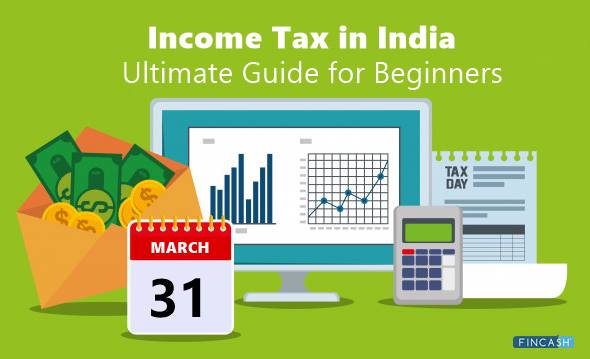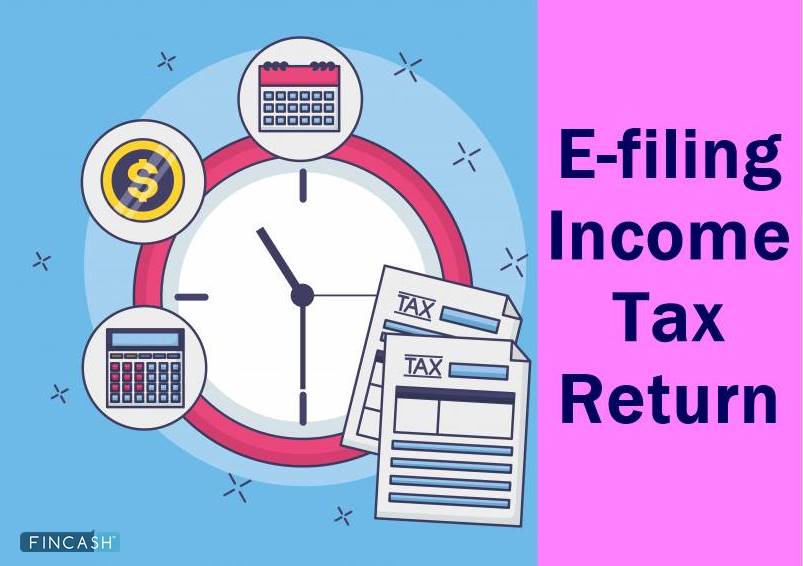14 Ways to Save Income Tax This FY 2022-2023
Union Budget 2022 - 23
No changes in income tax slabs or rates have been proposed. Also, no changes in additional tax exemptions or deductions been introduced. Standard Deduction for the salaried and pensioners also remains same as before. With no change in the income tax slabs and rates and basic exemption limit. An individual tax payer will continue to pay the tax at the same rates applicable in FY 2021-22/ FY 2020-21.

| Income Range Per Annum | Tax Rate (2021-22) |
|---|---|
| Up to INR 2,50,000 | Exempt |
| INR 2,50,000 to 5,00,000 | 5% |
| INR 5,00,000 to 7,50,000 | 10% |
| INR 7,50,000 to 10,00,000 | 15% |
| INR 10,00,0000 to 12,50,000 | 20% |
| INR 12,50,000 to 15,00,000 | 25% |
| Above INR 15,00,000 | 30% |
How to Save Tax Apart from Section 80C?
Apart from 80C, there are many ways to save tax, which offer deductions and gives a joy of tax benefits-
1. Section 80D: Medical Insurance Premium
Section 80D of the income tax act helps to claim deductions from the total taxable income from the payment of medical insurance premiums. You can avail a maximum deduction of Rs. 25,000 per year as you pay for medical purposes for self, spouse or children. The maximum tax deduction limit for senior citizens is Rs. 50,000.
Also, if you have spent money on behalf of your parents then you get a maximum tax deduction up to Rs. 25,000.
Talk to our investment specialist
2. Section 80G: Charitable Donations
You can claim 50% or 100% of the amount, which is donated to the charitable trust. To claim the deduction you need to preserve the receipt of the organisation after the financial year. Ensure that whenever you donate money to charities or trusts, check if they are registered under Section 12A post which they qualify for the 80G certificate.
3. Section 80GG: Rent towards Accommodation
Individuals staying in a rented house can claim deductions under section 80GG. But, this tax deduction is eligible for those who are not salaried and those employees who don't get House Rent Allowance (HRA) from their employers.
4. Section 80D: Health Insurance
Nowadays, medical care is skyrocketing and buying health insurance has become requisite from everyone. Because it assists you in your medical expenses in case of an emergency. For instance, if you pay premiums for your health insurance then you can save up to Rs.15,000 - 20,000 under section 80D.
5. Section 80E: Education Loans
Under Section 80E, the interest paid on loans for higher education remains tax-free for self, spouse and children. An individual can claim the deduction amount of interest paid not the principal amount.
6. Section 80EE: Home Loans
Home loans are one of the best ways to save tax in India. Under the new regime, home loans have assisted in bringing down the taxable income. Section 80EE, first time home buyers can claim a maximum deduction of Rs.50,000 during a financial year. This benefit is on the interest paid on the Home Loan. Note that this is not part of Section 80C of IT Act, 1961.
7. Section 80TTA: Interest on Saving Accounts
The interest earned by saving accounts can be claimed as a deduction under Section 80TTA. But, the interest on saving account above Rs.10,000 will be counted as taxable income.
8. HUF Receipts
hindu undivided family (HUF) status is given to certain religions like Hindus, Sikhs and Jain families. For them, section 10 (2) clearly states that the amount received from these families is exempted from tax duties. In this scheme, a person is allowed to pay tax from their salary under their name and pay the amount in HUF account. So, the paid amount will be not liable for the tax.
6 Ways to Save Income Tax Under Section 80C
Under Section 80C you may find various options and ways to save income tax-
1. Life Insurance
Life Insurance does not only provide full life coverage, but it is also the best way to save taxes. In a life insurance policy, one needs to pay a specific amount every year, which in turn is paid back in the healthy lump-sum. Life insurance of type Edowment, ULIP, term life, annuity is allowed for tax savings. The maximum deduction eligible under section 80C is upto Rs.1,50,000.
Fund Selection Methodology used to find 5 funds
2. ELSS
In Mutual Funds, you can go for ELSS (Equity Linked Saving Scheme) wherein you can attain deductions up to Rs.1,50,000 under section 80C. Being a combination of equity and tax saving, ELSS is an optimal gateway to equity. This means, with the tax savings, your money grows as the stock market grows. So, the gains are high in ELSS. It also has the lowest lock-in period of 3 years.
Fund NAV Net Assets (Cr) 3 MO (%) 6 MO (%) 1 YR (%) 3 YR (%) 5 YR (%) 2024 (%) Tata India Tax Savings Fund Growth ₹46.3289
↑ 0.16 ₹4,748 0.5 5.8 17.3 16.6 13.8 4.9 Bandhan Tax Advantage (ELSS) Fund Growth ₹157.482
↑ 0.52 ₹7,333 0.2 4.3 14.2 16 15.8 8 Aditya Birla Sun Life Tax Relief '96 Growth ₹62.42
↑ 0.12 ₹15,415 0.1 2.7 18.2 16.2 9.8 9.3 DSP Tax Saver Fund Growth ₹145.728
↑ 0.56 ₹17,609 1.5 6 16.4 20.9 17.1 7.5 HDFC Long Term Advantage Fund Growth ₹595.168
↑ 0.28 ₹1,318 1.2 15.4 35.5 20.6 17.4 Note: Returns up to 1 year are on absolute basis & more than 1 year are on CAGR basis. as on 18 Feb 26 Research Highlights & Commentary of 5 Funds showcased
Commentary Tata India Tax Savings Fund Bandhan Tax Advantage (ELSS) Fund Aditya Birla Sun Life Tax Relief '96 DSP Tax Saver Fund HDFC Long Term Advantage Fund Point 1 Bottom quartile AUM (₹4,748 Cr). Lower mid AUM (₹7,333 Cr). Upper mid AUM (₹15,415 Cr). Highest AUM (₹17,609 Cr). Bottom quartile AUM (₹1,318 Cr). Point 2 Established history (11+ yrs). Established history (17+ yrs). Established history (17+ yrs). Established history (19+ yrs). Oldest track record among peers (25 yrs). Point 3 Top rated. Rating: 5★ (upper mid). Rating: 4★ (lower mid). Rating: 4★ (bottom quartile). Rating: 3★ (bottom quartile). Point 4 Risk profile: Moderately High. Risk profile: Moderately High. Risk profile: Moderately High. Risk profile: Moderately High. Risk profile: Moderately High. Point 5 5Y return: 13.85% (bottom quartile). 5Y return: 15.84% (lower mid). 5Y return: 9.78% (bottom quartile). 5Y return: 17.06% (upper mid). 5Y return: 17.39% (top quartile). Point 6 3Y return: 16.65% (lower mid). 3Y return: 16.03% (bottom quartile). 3Y return: 16.17% (bottom quartile). 3Y return: 20.87% (top quartile). 3Y return: 20.64% (upper mid). Point 7 1Y return: 17.29% (lower mid). 1Y return: 14.19% (bottom quartile). 1Y return: 18.22% (upper mid). 1Y return: 16.45% (bottom quartile). 1Y return: 35.51% (top quartile). Point 8 Alpha: -2.63 (bottom quartile). Alpha: 0.45 (lower mid). Alpha: 1.55 (upper mid). Alpha: -0.15 (bottom quartile). Alpha: 1.75 (top quartile). Point 9 Sharpe: 0.00 (bottom quartile). Sharpe: 0.21 (lower mid). Sharpe: 0.29 (upper mid). Sharpe: 0.16 (bottom quartile). Sharpe: 2.27 (top quartile). Point 10 Information ratio: -0.26 (bottom quartile). Information ratio: -0.08 (upper mid). Information ratio: -0.74 (bottom quartile). Information ratio: 0.96 (top quartile). Information ratio: -0.15 (lower mid). Tata India Tax Savings Fund
Bandhan Tax Advantage (ELSS) Fund
Aditya Birla Sun Life Tax Relief '96
DSP Tax Saver Fund
HDFC Long Term Advantage Fund
3. Tax Saving Fixed Deposit
Tax saving fixed deposits provides tax exemptions on investments up to Rs.1,50,000 under section 80C. You can gain an attractive amount with good interest rates. The deposit comes with a lock of 5 years.
4. Senior Citizens Savings Scheme (SCSS)
This scheme is formulated only for the senior citizens, the ones who are above 60 years or have opted for retirement at 55 years of age. Under Sec 80C, the maximum SCSS investment liable for tax exemption is Rs.1,50,000.
5. Provident Fund
Provident Fund (PF) is helping to create a goal with long term returns. Deposits made in PF are eligible to claim a tax deduction upto Rs.1,50,000 under section 80C.
6. National Saving Certificates
National Saving Certificates (NSC) start with a minimum deposit of Rs.100. The investment tenure of NSC is 5 years. On maturity, you can claim the entire amount back to their account. However, if not claimed the entire amount gets reinvested in the scheme. You can claim a tax deduction of Rs.1,50,000 under Section 80C of income tax act.
All efforts have been made to ensure the information provided here is accurate. However, no guarantees are made regarding correctness of data. Please verify with scheme information document before making any investment.












